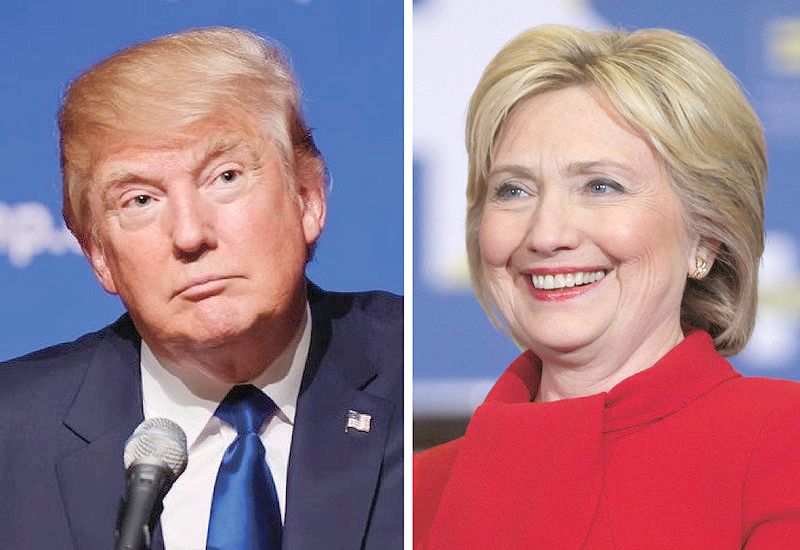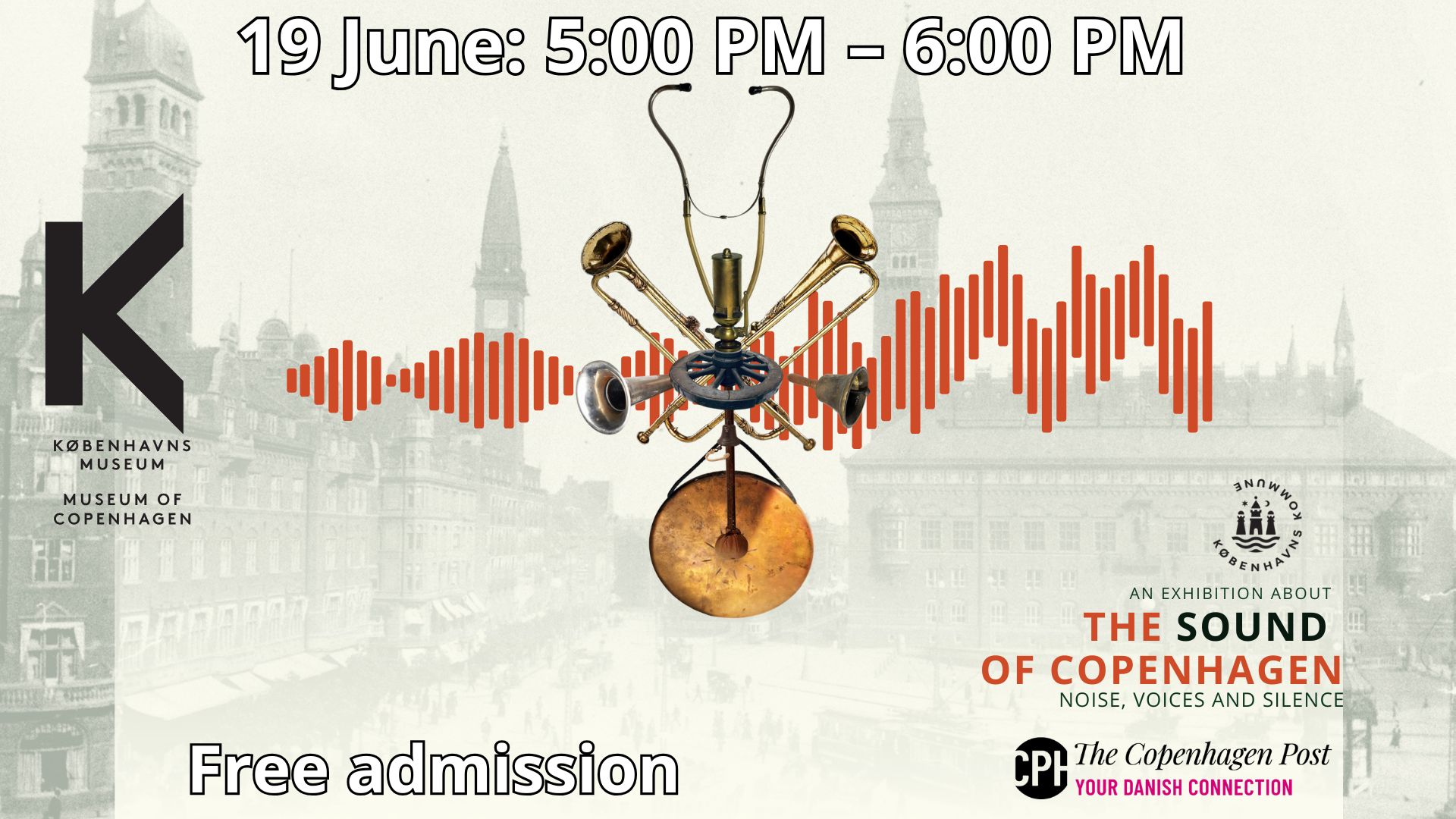The Danes are mostly mortified by the prospect of Donald Trump becoming president of the USA, but how happy would they be with the current American political system that the Republican candidate is hell-bent on changing?
Imagine if in order to be elected as Denmark’s prime minister, Lars Løkke Rasmussen had to raise 120 million kroner every month – in the two years running up to the election.
Imagine if he sought this money primarily from wealthy Danes who made contributions of at least 600,000 kroner – and some as much as 12 million kroner.
Imagine if a third of the money was donated not to Rasmussen directly, but to organisations with names like Save Denmark from its Government. It doesn’t have to make its donations public, and it pays for television ads that call Helle Thorning Schmidt a liar and air throughout Denmark on TV2.
If you can imagine all this, you will be in the middle of the American election of 2016.
Understanding the rise of the Donald
Three issues in American politics explain a lot about the unexpected rise of Donald Trump.
First, that over a billion dollars will be spent by whomever is elected in 2016 – and this money will have been raised largely from corporations and the wealthy.
Second, that the major source of spending will be televised ads.
And third, that the reason for the first and the second is not because lots of money and televised ads are what the American people actually want in their elections – but because the US Supreme Court has decided that is what the Constitution requires.
Unlike in Europe
Our American democracy is unlike many in Europe in that it allows politicians and their supporters to talk about political issues in television ads similar to ads selling shampoo, toothpaste, and cars. These ads can be funded by politicians, their campaigns and parties, or by corporations, unions, wealthy individuals, and political action committees – the largest of which we call ‘SuperPACs’.
This is the result of two Supreme Court rulings: Buckley vs Valeo in 1976, and Citizens United vs Federal Election Commission in 2010.
Buckley vs Valeo struck down a law passed by Congress limiting the amount of money that US political candidates, parties, and PACs could take in contributions and spend on campaigns. The decision ruled that the American “electorate’s increasing dependence on television, radio, and mass media for news and information” had made these “expensive modes of communication … indispensable instruments of political speech”.
Because you needed a lot of money to use media technologies like television to communicate with the public, the high court reasoned that spending money during an election was equivalent to exercising the “freedom of speech” protected by the First Amendment to the US Constitution.
Agreeable for ads and ammo
Since Buckley, groups like the National Rifle Association (NRA) and Citizens for Better Medicare (which is actually an association of drug manufacturers) have raised and spent huge amounts of money in American politics. They have spent it largely on television ads meant to influence voters.
These ads were not paragons of well-informed political discourse. The racially-charged ‘Weekend Passes’, for example, suggested in 1988 that Democrat presidential candidate Michael Dukakis wanted to let felons out of jail who had committed crimes of rape and murder. ‘Prouder, Stronger, Better’ promoted the re-election of Republican president Ronald Reagan in 1984 with the simple declaration that it was “morning in America again”.
By the 1990s, the rate of spending on these kind of ads was growing rapidly – exceeding $100 million in 1996, $200 million in 1998, and $500 million in 2000. One reason that politicians do not pass stronger gun control laws in the US, even though the majority of Americans want them, is because they fear being targeted by NRA ads when they seek re-election.
McCain failed to rein them in
By the beginning of the 21st century, members of the US Congress in both parties described televised ads in politics as “brutal”, “drive-by shootings”, and “air pollution”. In 2002, Republican senator John McCain (who would later run for president) and Russ Feingold, a Democrat, proposed and passed bipartisan legislation limiting broadcast, cable, and satellite “electioneering communication” funded by corporations or unions during periods just before elections.
In 2008, Hillary Clinton competed with Obama for the Democratic nomination. A conservative PAC called ‘Citizens United’ wanted to advertise a film on cable television attacking Clinton, thinking that Republicans would have an easier time beating Obama in the election. The PAC argued that blocking its ads under McCain-Feingold violated its freedom of expression – and it cited Buckley.
In 2010, the Supreme Court struck down Congress’s ad restriction in Citizens United. As in Buckley, the Court referenced technology in its decision, commenting that television was one of “the most important means of mass communication in modern times”. The First Amendment, it said, “was certainly not understood to condone the suppression of political speech in society’s most salient media”.
Nothing without a billionaire
These rulings have contributed significantly to the 2016 presidential race. Already a year before Election Day, PACs had spent $69 million on political ads. During a single month in summer, Clinton and her associated PACs spent $26 million on ads in only eight battleground states. A key source of this funding was billionaire Americans.
The Republicans rely on Sheldon Adelson, a Las Vegas casino owner, and industrialists Charles and David Koch (who pledged to spend nearly $1 billion through PACs in the 2016 race). The Democrats rely on financiers George Soros and Michael Bloomberg. A reporter commented in The Atlantic during the Republican nomination race that one candidate’s biggest problem was not his lack of good political ideas, but “that he’s been unable to find a billionaire backer” – giving a whole new gloss to what Oliver Wendell Holmes called the “marketplace of ideas”.
Trump’s secret weapon
Trump, because he is personally wealthy, has been able to say he will not owe favors to these funders once in office – something Clinton has found harder to do. Clinton refused to release transcripts of speeches she gave to Wall Street donors when Bernie Sanders challenged her to do so during the primaries (WikiLeaks later released what might be portions of them). She spent the summer of 2016 speaking at fundraisers hosted by Hollywood stars like George Clooney that cost tens of thousands of dollars to attend. One event used a noise-obscuring machine to make sure her words were not heard outside of the garden where she was speaking. Meanwhile, Clinton did not give a public press conference for over 250 days.
This is not to suggest that Clinton’s activities, which are common in today’s high-cost political environment in the US, are equivalent to Trump’s bigoted and misogynistic comments and practices. But it should help us to understand why the race has ever appeared to be close at all – which it has several times. Clinton’s need to focus on high-value donors gave Trump an unlikely source of credibility – one he also used to defeat other well-known politicians in the Republican primary.
The networks’ darling
Trump also benefits from a mutually-reinforcing relationship with the television networks. As viewers tune in to see what he will do or say next as a form of entertainment, they incentivise networks to show more Trump, giving him millions of dollars’ worth of free media time. Les Moonves, the chairman and CEO of CBS, acknowledged this dynamic. He described the 2016 presidential race as “a circus” that “may not be good for America, but it’s damn good for CBS”.
Trump is himself a television product. Many Americans base their idea of him as a successful businessman on a reality television show, ‘The Apprentice’. Although Trump’s actual record in business has been extensively questioned, and he refuses to release his tax returns to prove his wealth, he has been able to sell both himself and the political solutions he proposes to the American public by oversimplifying and keeping the details to a minimum. So far, it seems that about 40 percent of Americans are buying it.
Poor turnout expected
By the time of the election, the presidential campaigns will have been running for almost two years. By comparison, Canada elected its most recent prime minister in 78 days, and Denmark in 22. The cost will probably exceed a billion dollars per candidate. Polls show that Republicans and Democrats alike in the US believe that the high price of running for office discourages good candidates from running. When voters believe there are no ‘good’ candidates running – which is something that is often said about the race between Clinton and Trump – many people simply will not vote.
There is some evidence of that already. Turnout in the last US Senate elections, in 2014, was the lowest since 1990: 38 percent of the voting-eligible population went to the polls. In Europe, where most countries publicly finance elections, prohibit televised political ads, and require that candidates get equal time on broadcast media, voter turnout averages around 77 percent.
Watching too much TV
In 1970, the American artist Gil Scott-Heron wrote a lyric poem called ‘The Revolution will not be Televised’. Speaking about the continuing struggle for racial equality in America after the civil rights movement and assassinations of the ’60s, he warned of an increasingly television-watching public: “The revolution will not be brought to you by Xerox, in four parts without commercial interruptions / The revolution will not go better with Coke … fight the germs that may cause bad breath … make you look five pounds thinner.” Scott-Heron meant that transformative political action would not be the kind of convenient, pleasurable thing that marketers sold – the revolution “would not be televised”.
Twenty years ago, Václav Havel lamented that he had to take the helm of the world’s newest democracy during the era of television. “Where is it written that someone who is good on television is necessarily also a good politician?” the Czech president said in a 1995 commencement speech at Harvard. “Television forces me to express my thoughts as sparely as possible, in witticisms, slogans, or soundbites. How easily my television image can be made to seem different from the real me.”
The system’s to blame
This is what is most unsettling about U.S. politics in 2016. Forty years of high-cost, ad-based politics produced by Buckley v. Valeo and amplified by Citizens United has prepared a substantial portion of the American public to be taken in by a reality television show conman.
Furthermore, it has made many Americans so sceptical of money-raising politicians that they don’t trust Hillary Clinton, regardless of her qualifications – thinking she has simply been ‘bought’ by donors whom she will actually serve once in office. But as long as American politics remains high-cost and issue-light, the country should expect more disappointing political races like these.














